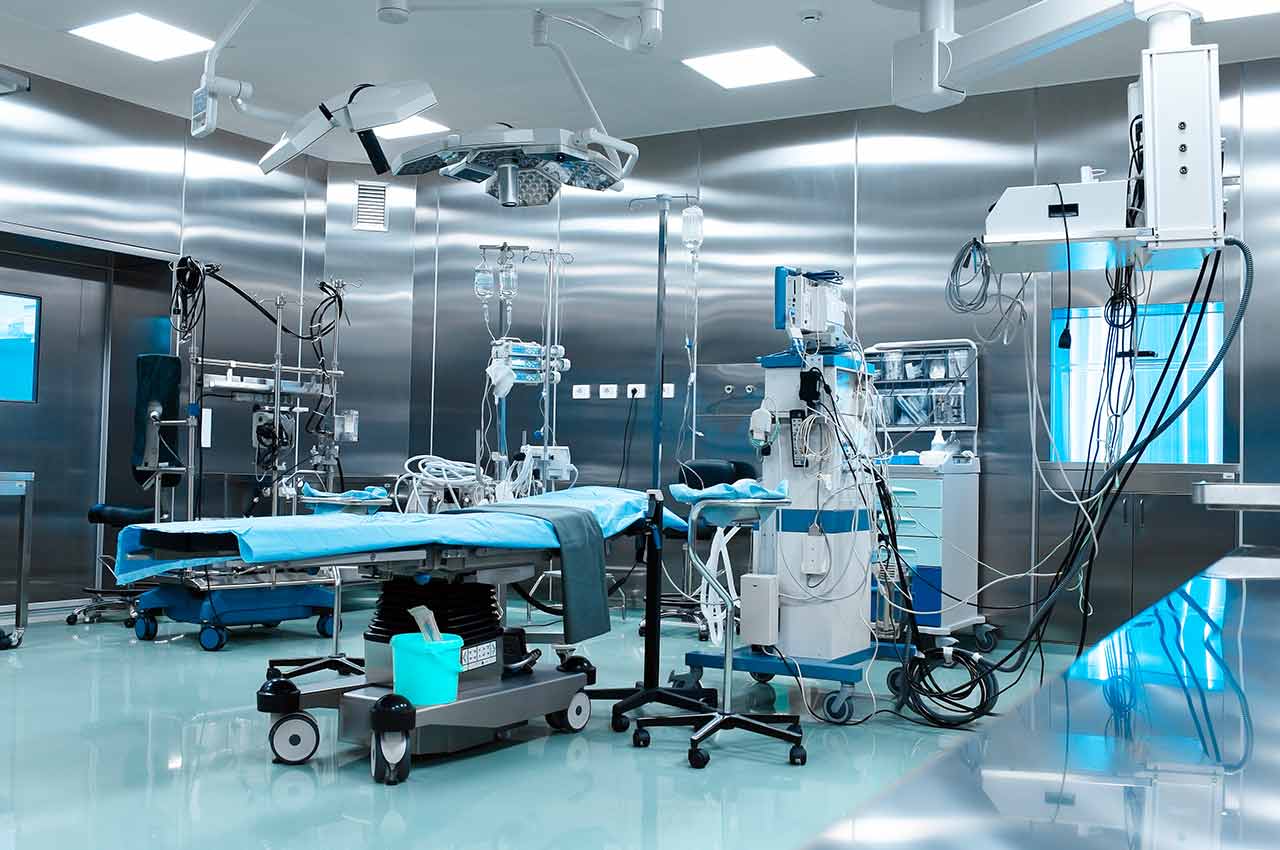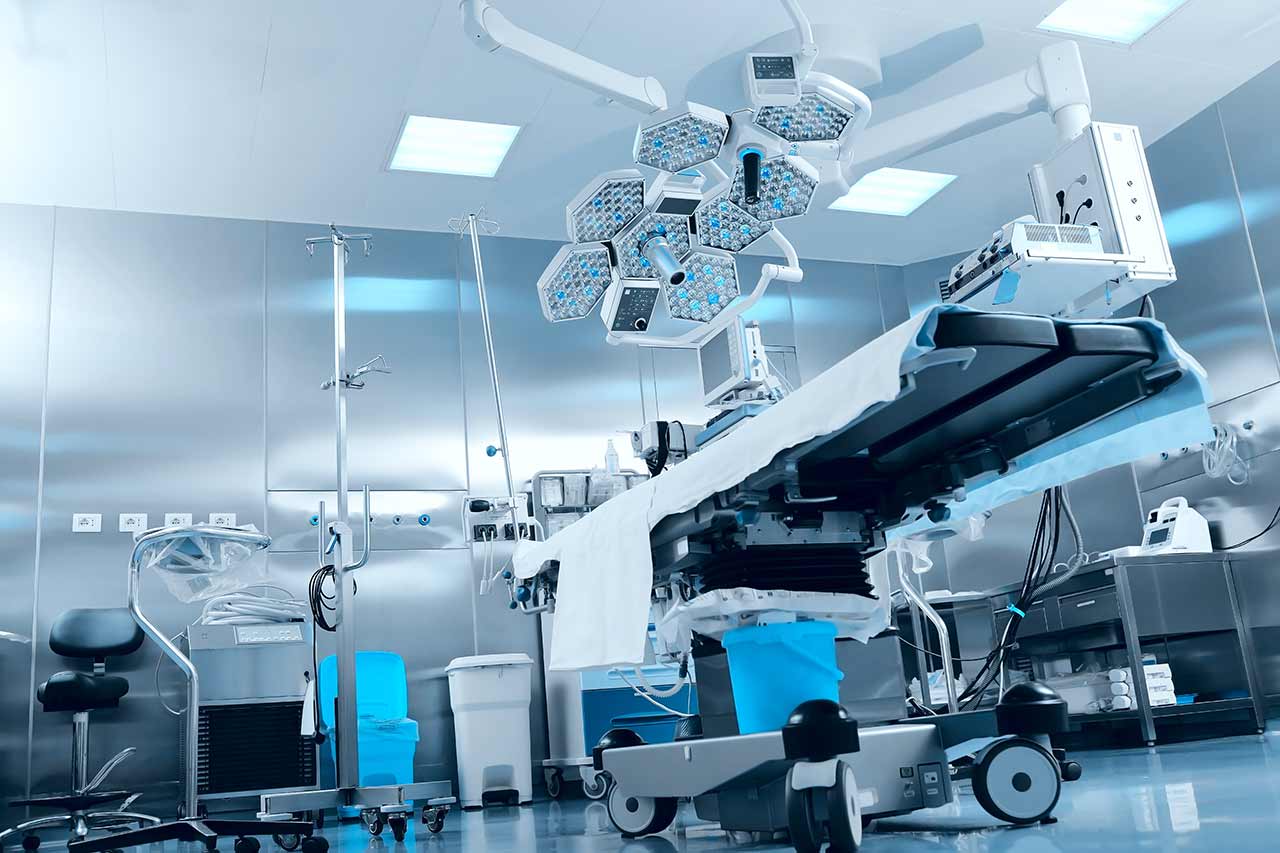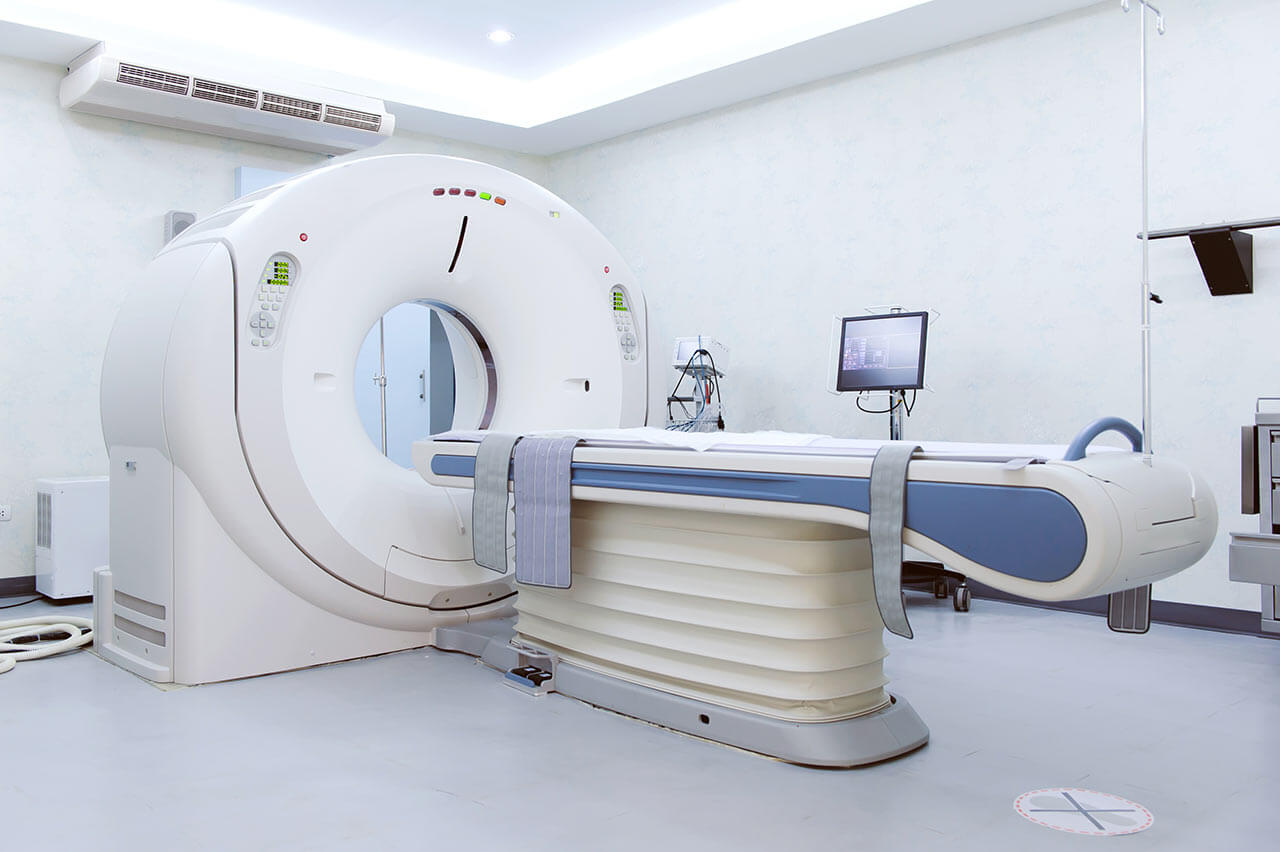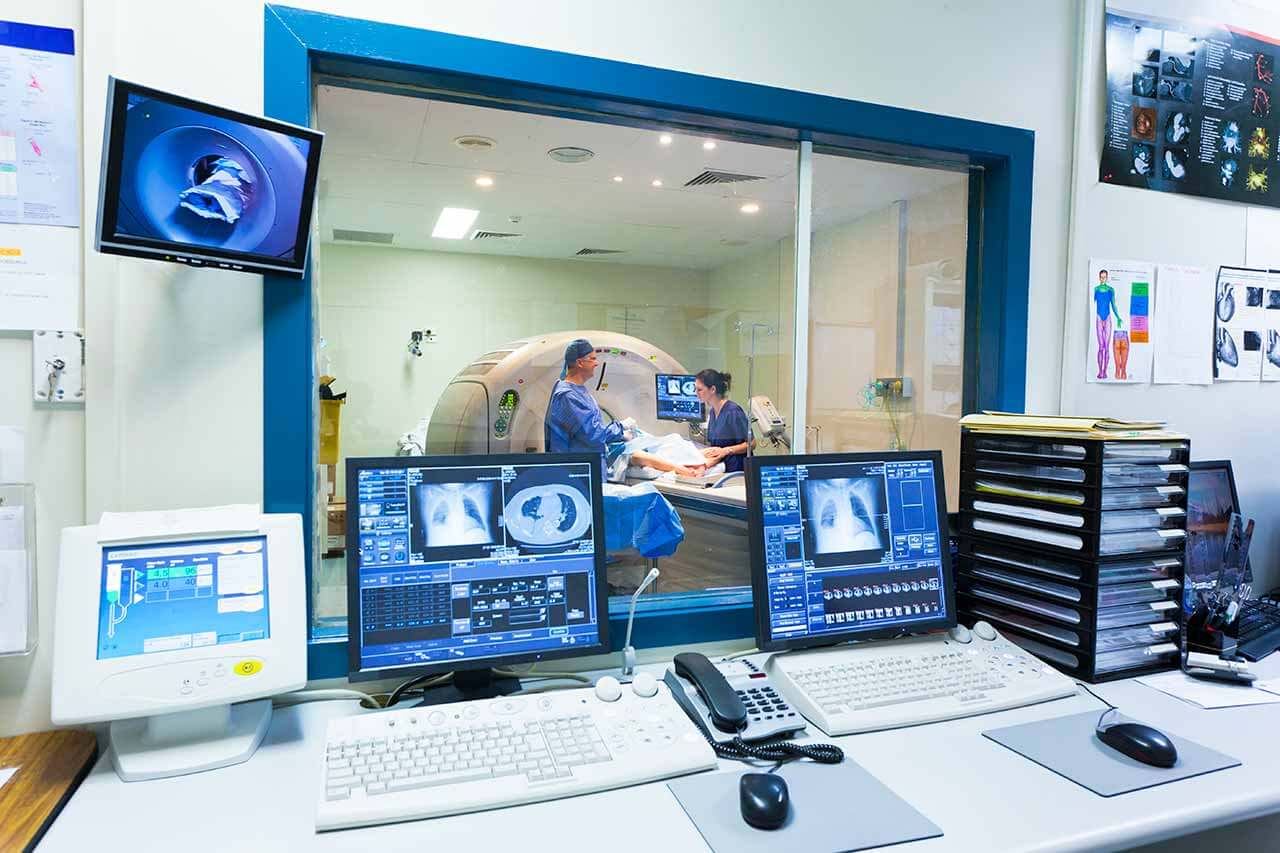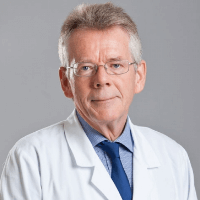
The program includes:
- Initial presentation in the clinic
- clinical history taking
- physical examination
- laboratory tests:
- complete blood count
- general urine analysis
- biochemical analysis of blood
- TSH-basal, fT3, fT4
- tumor markers
- indicators of inflammation
- indicators blood coagulation
- CT / MRI / Ultrasaund of head and neck
- hormonal therapy
- symptomatic treatment
- control examinations
- cost of essential medicines and materials
- nursing services
- nursing services
- services of all leading experts
- explanation of individual treatment plan
Required documents
- Medical records
- MRI/CT scan (if available)
Service
You may also book:
 BookingHealth Price from:
BookingHealth Price from:
About the department
The Department of Pediatric and Adolescent Medicine at the University Hospital Frankfurt am Main offers the full range of diagnostics and treatment of various diseases in children and adolescents. Structurally, the department is divided into sections, which specialize in particular medical fields. The department is headed by Prof. Dr. med. Thomas Klingebiel.
The experienced medical team of the department offers all services in neonatology (certification of the Level I Perinatal Center), neuropediatrics, pediatric allergology, pulmonology, oncology, hematology, hemostaseology and cardiology. The best experts of pediatric medicine are gathered under one roof, which, in combination with innovative and classical effective treatment methods allows to restore the health of young patients and to guarantee the normal development of the young body.
The main clinical focuses of the department include:
- Neonatology
- Medical care for seriously ill newborns and extremely premature babies
- Pediatric neurology
- Diagnostics and treatment of epilepsy
- Diagnostics and treatment of metabolic diseases affecting the nervous system
- Diagnostics and treatment of neuromuscular diseases (myopathies, peripheral nerve diseases)
- Diagnostics and treatment of congenital malformations of the nervous system (spina bifida, hydrocephalus, neurofibromatosis)
- Diagnostics and treatment of developmental disorders (delayed psychomotor and speech development, cerebral palsy)
- Neuro-oncology (diagnostics and treatment of brain tumors)
- Diagnostics and treatment of injuries of the nervous system (traumatic brain injuries, spinal cord injuries, peripheral nerve injuries)
- Diagnostics and treatment of inflammatory diseases of the nervous system (meningitis, encephalitis, multiple sclerosis)
- Diagnostics and treatment of neuropsychological disorders
- Pediatric endocrinology and diabetology
- Diagnostics and treatment of diabetes mellitus in childhood
- Diagnostics and treatment of growth disorders (for example, short stature)
- Diagnostics and treatment of thyroid diseases (for example, congenital hypothyroidism)
- Diagnostics and treatment of puberty disorders (for example, premature puberty)
- Diagnostics and treatment of puberty disorders (for example, chromosomal disorders)
- Diagnostics and treatment of adrenal gland diseases (for example, adrenogenital syndrome)
- Diagnostics and treatment of pituitary diseases (for example, pituitary failure)
- Diagnostics and treatment of bone metabolism disorders (for example, osteoporosis)
- Diagnostics and treatment of lipid metabolism disorders (for example, high cholesterol)
- Diagnostics and treatment of rare and syndromal disorders accompanied by hormonal disorders (for example, Prader-Willi syndrome)
- Pediatric allergology, pulmonology, including the treatment of cystic fibrosis
- Lung function test in children of all age groups
- Determination of lung clearance index
- Allergy skin tests (prick test) and determination of allergy markers in the blood (specific IgE)
- Provocative allergy tests (food, conjunctival, nasal and pulmonary)
- Determination of FeNO in exhaled air (from the lungs and nose)
- Cold allergy tests
- Sweat test
- Bronchoscopy with bronchoalveolar lavage
- Imaging diagnostics (thoracic X-ray examination, CT, high-resolution CT and MRI of the lungs)
- Diagnostics and treatment of food allergies
- Diagnostics and treatment of severe types of bronchial asthma
- Diagnostics and treatment of cystic fibrosis
- Diagnostics and treatment of bronchiolitis obliterans
- Pediatric oncology, hematology and hemostaseology
- Diagnostics and treatment of all hematological and oncological diseases in children and adolescents (congenital and acquired hematopoietic defects, congenital and acquired blood-clotting disorders, immunodeficiencies, malignant systemic diseases and solid tumors)
- Pediatric cardiology
- Non-invasive diagnostics
- ECG
- Echocardiography
- Transesophageal echocardiography
- Long-term ECG recording
- 24-hour blood pressure monitoring
- Control of pacemakers and defibrillators of various manufacturers
- Stress ECG (ergometry on a bicycle and a treadmill)
- Spiroergometry (on a bicycle and a treadmill)
- Tilt test
- Interventional diagnostics and therapy
- Diagnostic cardiac catheterization, including coronary angiography and biopsy
- Renal artery angiography
- Balloon valvuloplasty and angioplasty
- Interventional closure of patent arterial duct
- Interventional closure of atrial and ventricular septal defects
- Non-invasive diagnostics
- Other medical services
Curriculum vitae
- Study of Medicine at the Universities of Marburg and Lübeck.
- 1980 Doctorate.
- 1980 Research Associate/Physician at the Institute of Pathology and at the Department of Pediatrics, University of Tuebingen.
- 1992 Habilitation in Pediatrics at the University of Tuebingen.
- Since 2000 C4 Professor and Head of the Department of Pediatric and Adolescent Medicine at the University Hospital Frankfurt am Main.
Specialization
- 1988 Board certification in Pediatrics.
- 2006 Specialization in Pediatric Hematology and Oncology, Medical Association of Hessen, Frankfurt.
Teaching Activities
- Since 2007 Vice-Dean of the Faculty of Medicine, Goethe University Frankfurt.
Membership in Scientific Societies
- 2006 - 2012 Chairman of the Society of Pediatric Oncology and Hematology.
Awards and Prizes
- Van Bekkum Award of the European Society for Blood and Marrow Transplantation (EBMT).
- 2014 Rober Pfleger Research Prize.
- Prize for Excellent Teaching of the Faculty of Medicine, University of Frankfurt.
Photo of the doctor: (c) Universitätsklinikum Frankfurt
About hospital
According to the reputable Focus magazine, the University Hospital Frankfurt am Main ranks among the top German medical facilities!
The hospital was founded in 1914 and today is a well-known German medical facility, which combines rich traditions and scientific innovations. A medical team of more than 6,500 employees cares about the health of patients around the clock, ensuring them with the highest standards of medical care and best possible safety.
The hospital has 32 specialized departments and more than 20 research institutes, which have all the necessary resources for the provision of the most effective care for any patient. The hospital has 1,488 beds for inpatient medical care. The medical facility diagnoses and treats more than 51,000 inpatients and about 44,800 outpatients every year. Due to the demonstration of outstanding treatment results, the number of patients seeking medical care here increases significantly annually.
The hospital presents all areas of modern medicine, whereas its special competence lies in neuroscience, oncology, cardiovascular medicine, cardiac surgery and other fields. Many treatment methods available here are unique not only in Europe, but also internationally.
Photo: (c) depositphotos
Accommodation in hospital
Patients rooms
The patients of the University Hospital Frankfurt am Main live in comfortable rooms made in modern design and meeting the highest standards of European medicine. Each room is equipped with an ensuite bathroom with a toilet and a shower. The standard room includes a comfortable, automatically adjustable bed, a bedside table, a wardrobe, a table and chairs for receiving visitors and a TV. If desired, patients can use Wi-Fi. The patients can also stay in the enhanced-comfort rooms.
Meals and Menus
The patient and his accompanying person have a daily choice of three menus. If for any reason you do not eat all the food, you will be offered an individual menu. Please inform the medical staff about your dietary preferences prior to the treatment.
Further details
Standard rooms include:
Religion
Religious services are available upon request.
Accompanying person
During the inpatient program, an accompanying person may stay with you in a patient room or in a hotel of your choice.
Hotel
During the outpatient program, you may stay in a hotel of your choice. Managers will help you choose the most suitable options.
